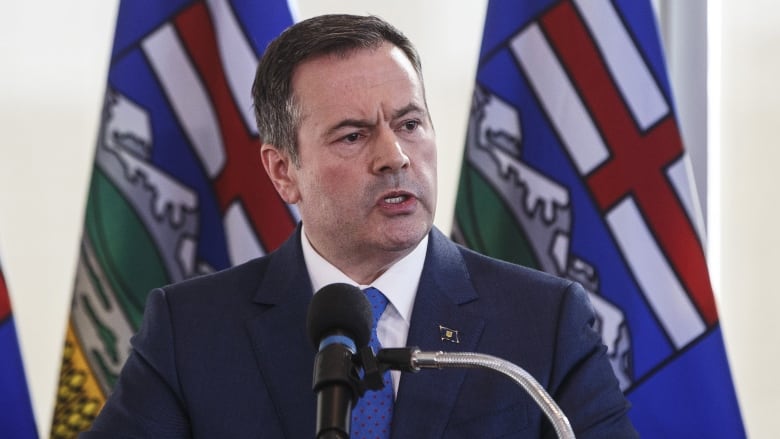Alberta government considering immigration changes during pandemic
Premier encourages employers to hire people already in Alberta

Premier Jason Kenney says changes are coming to Alberta's immigration practices as a result of the coronavirus pandemic.
Although the government won't yet release details, the premier said the province can accommodate fewer newcomers as a result of global travel restrictions and Alberta's economic crisis. He made the comments during a Facebook live video question and answer session on Wednesday night.
He said the government will push Alberta employers to "do everything they possibly can to look within Alberta to the huge and growing number of unemployed people" when hiring.
A formal policy announcement should come within weeks, a government spokesperson said Thursday.
However, immigration lawyers cautioned any rapid changes to immigration rules could have unintended consequences.
Although business prospects are rough right now, Calgary lawyer Evelyn Ackah said they will bounce back. When they do, they're going to need immigrants to do the jobs Canadians just won't do, she said.
Few Canadians apply for jobs in slaughterhouses or at fast-food restaurants, lawyers say.

Ackah said as a result of the coronavirus pandemic, prospective immigrants are contacting her from China and India. They're interested in buying and running businesses in Canada. Those job creators are who the province should be attracting, she said.
"Quick changes, boom boom boom, they have long repercussions and it takes a long time to resolve, and so, I really want to not let this crisis change the direction and the trajectory of immigration's process," she said.
Limited provincial control
With immigration being federal jurisdiction, there are limited steps Alberta's government could take to curtail newcomers, said Megan Dawson, a partner at McCuaig Desrochers in Edmonton.
The Alberta Immigrant Nominee Program allows the provincial government to select immigrants who are already working temporarily in Alberta to apply for permanent resident status if their skills and education fill an economic need in the province.
It's a joint program with the federal and provincial government. In 2019, the province sponsored 6,000 immigrants through the program. From January 2015 to March 2020, nearly 50,000 people came to Alberta through the program, said Adrienne South, press secretary to the minister of labour and immigration.
The nominated immigrants are a fraction of the more than 232,000 people who became Canadian permanent residents during the same time period and intended to live in Alberta.
The federal government controls the admission of temporary foreign workers, refugees and other express entry newcomers, Dawson said.
Employers must often recruit workers with specialized knowledge and skills when people with the right training can't be found in the province, she said.
Those economic immigrants often train Albertans and help companies create new jobs for locals, she said.
Alberta has a list of workers it doesn't need, including teachers, actors, athletes and real estate agents. Dawson said the province could potentially expand that list of categories.
"There already are safeguards in place to show, that we did our best to hire Canadians for this job first," she said.
"I think the ramifications could be potentially unintended or unexpected in a negative sense for some Alberta businesses if they're not able to staff their business with foreign workers."
Pandemic slowed immigration process
Although the provincial immigrant nominee is still accepting applications, the lawyers say the pandemic has made the bureaucracy of immigration more difficult.
Ackah said some temporary workers in the midst of applying for permanent residency have been laid off, which could affect their eligibility.
Government programs have been accommodating and allowed extensions while applicants seek jobs in their fields, she said.
Other people ready to come to Canada can't find flights or cross borders due to travel restrictions.
Dawson said offices that process visas and collect biometric data, such as fingerprints, are also closed.
"There's essentially a large pause button on people trying," she said.
According to Statistics Canada, the proportion of Alberta's population consisting of immigrants more than doubled between 2001 and 2016. During the last census in 2016, nearly 24 per cent of people living in Alberta were immigrants.
